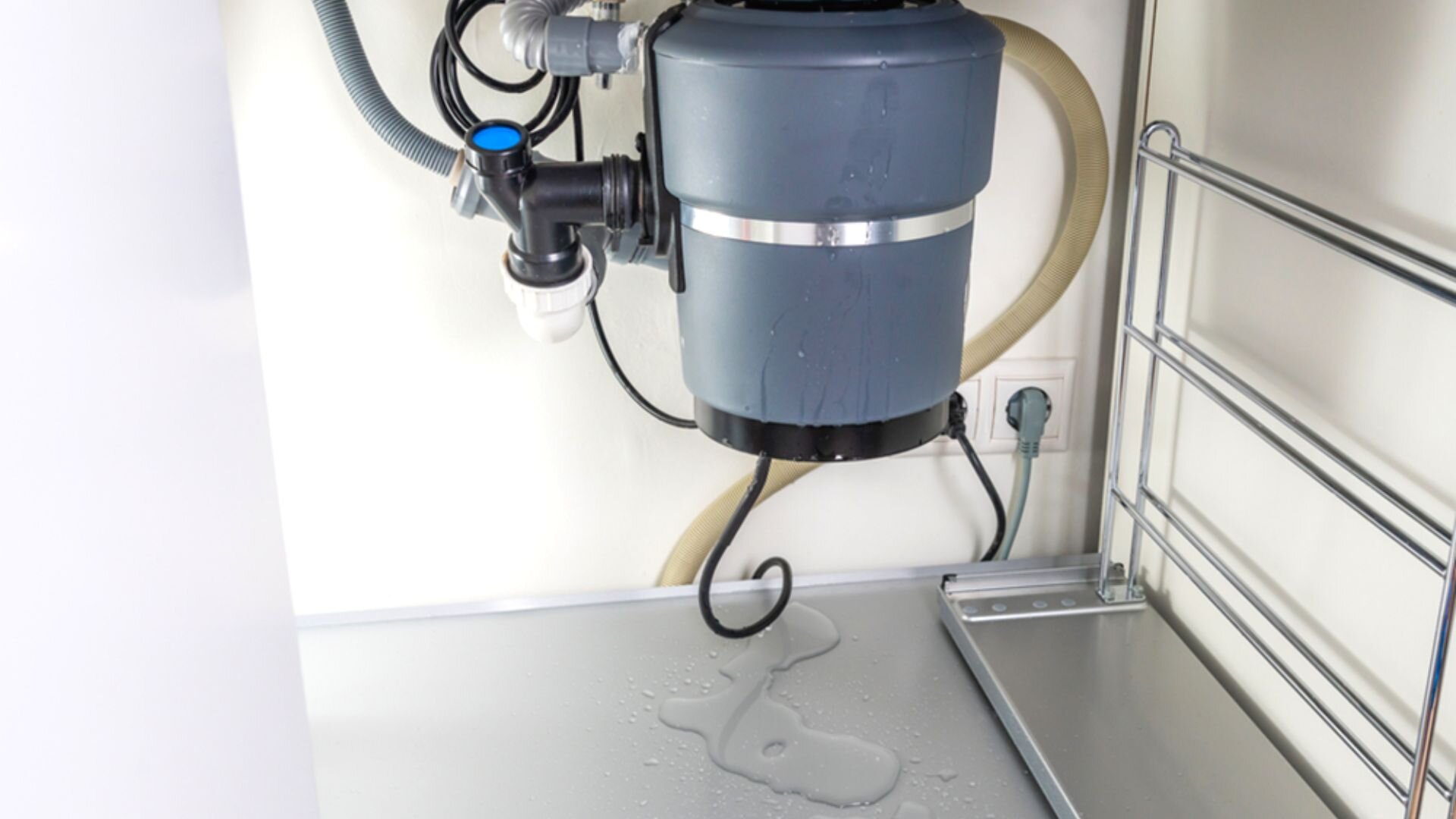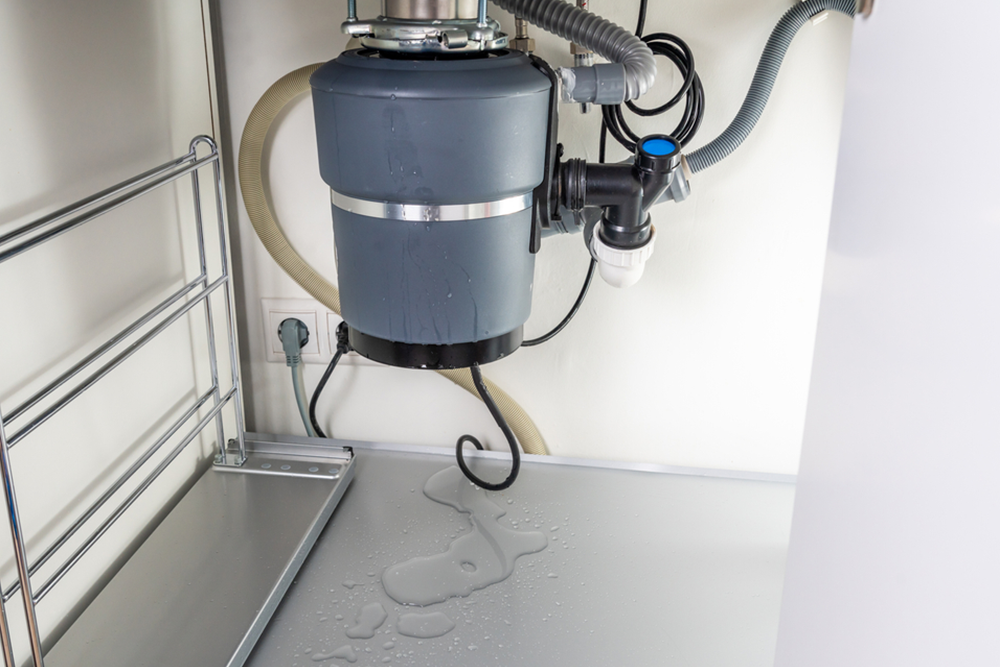Fast Solutions for Fixing a Dripping Waste Disposal Unit
Fast Solutions for Fixing a Dripping Waste Disposal Unit
Blog Article
In this article below yow will discover a lot of helpful additional info in relation to Tips on Fixing a Leaking Garbage Disposal.

Waste disposal unit are essential kitchen area appliances that assist in throwing away food waste successfully. Nevertheless, a leaking garbage disposal can be an aggravating and untidy trouble to handle. Luckily, several leakages can be fixed quickly with a few easy steps. In this short article, we will certainly go over exactly how to repair a dripping garbage disposal efficiently.
Intro
Garbage disposals are installed under kitchen area sinks and are created to shred food waste right into smaller pieces, permitting it to go through the plumbing system quickly. While these gadgets are normally trustworthy, leaks can take place in time because of damage, loosened connections, or damage to the unit.
Usual Root Causes Of Leakages in Garbage Disposals
Worn Seals and Gaskets
Seals and gaskets play an important role in avoiding water from leaking out of the garbage disposal. Gradually, these elements can degrade, causing leakages around the disposal device.
Loose Links
The links between the waste disposal unit and the plumbing system can become loosened gradually, causing water to leakage out throughout procedure.
Splits or Holes in the Disposal System
Physical damages to the waste disposal unit, such as cracks or holes in the real estate, can also cause leaks.
Determining the Resource of the Leakage
Before trying to repair a dripping garbage disposal, it is important to recognize the source of the leak. This can typically be done with visual assessment or by carrying out straightforward examinations.
Visual Assessment
Examine the garbage disposal unit very carefully for any kind of indicators of water leak. Pay close attention to areas around seals, gaskets, and connection points.
Evaluating for Leaks
One way to check for leaks is by running water via the disposal unit and checking for any noticeable indications of leak.
Tools and Products Needed for Dealing With a Dripping Garbage Disposal
Before starting the repair process, gather the required devices and materials, consisting of a screwdriver, adjustable wrench, plumbing professional's putty, substitute seals or gaskets, and epoxy or patching material for fixing fractures or openings.
Step-by-Step Overview to Dealing With a Dripping Waste Disposal Unit
Shut off the Power
Before trying any type of fixings, guarantee that the power to the waste disposal unit unit is shut off to avoid the threat of electric shock.
Situate the Leak
Identify the specific area of the leak and figure out the reason.
Tighten up Links
Use a wrench to tighten up any loose links in between the disposal device and the pipes system.
Change Seals or Gaskets
If the leak is due to used seals or gaskets, get rid of the old components and change them with new ones.
Patching Cracks or Holes
For fractures or openings in the disposal device, use epoxy or an ideal patching material to secure the damaged location.
Checking the Garbage Disposal After Repair
When the repair service is total, examine the waste disposal unit by running water through it to make sure that the leak has actually been settled.
Preventive Upkeep Tips to Stay Clear Of Future Leakages
To avoid future leaks, it is necessary to do normal upkeep on your waste disposal unit. This includes keeping it clean, staying clear of placing non-food items or tough objects down the disposal, and periodically checking for leakages or various other problems.
Verdict
Finally, repairing a dripping waste disposal unit is a fairly simple procedure that can be completed with standard tools and products. By complying with the steps described in this post and practicing preventive upkeep, you can maintain your garbage disposal in good working problem and avoid expensive fixings in the future.
HERE’S HOW TO FIX YOUR GARBAGE DISPOSAL
WHAT TO DO IF SOMETHING IS STUCK IN YOUR GARBAGE DISPOSAL
If the impeller won’t turn, there’s probably something stuck in the disposal. It could be a steak bone or peach pit, although plumbers report pulling all sorts of inappropriate objects out of disposals, such as bottle caps or aluminum foil. Make sure power to the disposal is off, and look inside to see if you can see the source of the jam.
Never stick your fingers in a disposal. Pull out anything you see with tongs or pliers.
If the disposal still won’t work, it may be time to call a plumber or consider buying a new disposal. GEM Plumbing & Heating is here for all of your garbage disposal needs.
WHAT TO DO IF YOUR GARBAGE DISPOSAL DRAIN IS CLOGGED
Take everything out from underneath your sink and put a bucket or other container under your disposal to catch any water that drains out. Disconnect your disposal from the power supply. If it’s plugged into a wall outlet, unplug it. If it’s hardwired into an electrical box, go to the electrical panel and turn off the breaker for the disposal. Pour ¼ cup of baking soda into the drain, followed by ½ cup of white vinegar. Give the solution a few minutes to fizz and do its work. Look into the disposal with a flashlight to see if you can see an object that might be causing the clog. If you see it, remove it using tongs or pliers. MORE TIPS ON DEALING WITH A CLOGGED GARBAGE DISPOSAL
Never use drain cleaner in a garbage disposal. It can damage the plastic parts inside the disposal. You can also be splashed with the caustic liquid while working to clear the clog. Beware! Never stick your fingers into a garbage disposal. Trust us — not a good idea. In many instances, your dishwasher drains through your garbage disposal. This allows the disposal to grind any large food particles that may be drained out of your dishwasher. There are some jurisdictions, however, where the plumbing code prohibits such a connection. WHAT TO DO WHEN YOUR DISHWASHER DRAINS THROUGH THE DISPOSAL
Run some water in the sink so your plunger has at least a ½-inch of water to create a seal and plunge vigorously up and down several times. You may need to repeat this several times. Run hot water down the drain to clear any residue that remains.

Do you like reading up on Why Is ? Try to leave feedback down the page. We would be delighted to see your views about this blog entry. Hoping that you visit us again later on. Sharing is caring. Helping people is fun. Thank you for going through it.
Schedule A Service Report this page